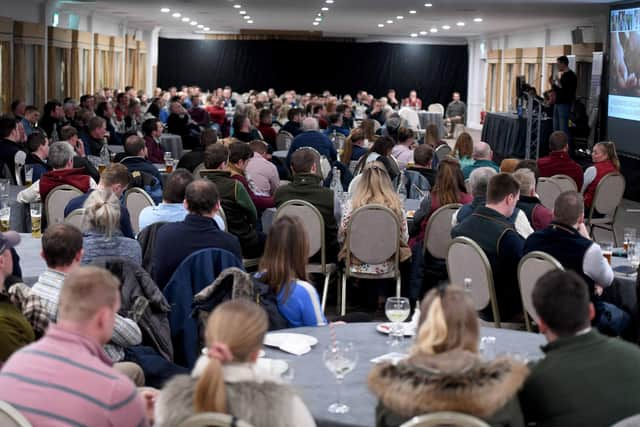Regenerative farming or profit? Yorkshire farmers debate the future of the industry
Some 240 farmers and allied industry professionals took part in the Spring Debate held by the Future Farmers of Yorkshire network, which includes farmers, vets and industry supporters.
Farmers were asked to consider whether they can carry on farming in the same way they have done for decades, at a time when farm input costs have reached all-time highs and existing farm support payments are being phased out, amid an ever-growing population and the challenges posed by a changing climate.
Advertisement
Hide AdAdvertisement
Hide AdRegenerative agriculture approaches have been adopted by some farmers as a way of adapting to these challenges, with ‘regen ag’ perhaps best defined by prioritising soil health on farms.


However, the debate asked a panel of industry speakers whether ‘regenerative agriculture the future for all UK farmers?’
Alastair Trickett who runs a mixed arable and sheep farm near Leeds
defined regenerative agriculture as “a way of farming which seeks to mimic nature as closely as possible whilst also achieving a sustainable profit for your business”.
Advertisement
Hide AdAdvertisement
Hide AdHe is also the co-founder of Grassroots Farming which supplies beef from regenerative farms to restaurants, and argued that all farms will be regenerative in the future because of political will.


Mr Trickett said: “Over the last three years, corporates with combined annual turnovers of $1.4trillion have made public commitments to procure from regenerative farms. That should be making every single one of us sit up and think ‘am I going to be swept up by that, or am I going to be a little island on my own?”
Bradley Sykes, a first-generation farmer based near Selby, who has a contracting and farm business growing potatoes, carrots, wheat, barley and peas, said regen ag is a reinvention of farming practices of old but emphasised the need for it to equate to profitable farming.
“If you look back to our ancestors and what they were doing with rotation, incorporating muck, crop rotation; everything they did is what we are being told to look at now. If regenerative farming helps our system to create
Advertisement
Hide AdAdvertisement
Hide Adprofit, then we should do it, but if it doesn’t, why are we bothering?”
Doug Dear, a fourth-generation farmer at Osgodby Grange near Selby, explained why he believed it was crucial to remain adaptable as a farmer amid evolving trends and challenges, and why he would not be dogmatically tied to regenerative agricultural principles.
“A phrase I use is ‘adaptive till’, so that’s min and max till, some ploughing and direct drilling on my farm. Whatever suits the crop and the land on the day. Nothing is set in stone. Everything is geared towards efficiency. An acre covered for the least cost is the way forward. Our main driver in the business is profit.”
Doug, whose family run arable and animal feedlot businesses, already use manure as a natural fertiliser for a wide variety of cropping and uses crops to graze sheep and as feed to finish about 3,500 cattle year. Doug said: “Mixed farming has been rebranded as regenerative farming. What am I going to do when the planet shifts, which it does on a regular basis? I’m going to adapt to survive in whatever form that might take and I’m going to
move on.”
